From Oui (December 1974). – J.R.
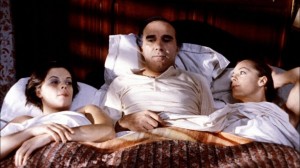
Le Trio lnfernal. It’s the Christmas season and Michel Piccoli shoots
a man in the eye — straight through a newspaper he’s reading — while
downstairs, Romy Schneider is finishing off Andrea Ferreol with
similar dispatch. The bodies are stripped clean and plunked into
adjacent bathtubs, which Piccoli promptly fills with sulfuric acid.
Mascha Gomska, Schneider’s sister — who completes the infernal
trio of murderers who slaughter people for their life insurance –
barfs on the living-room carpet, while offscreen, excited by all
these gay and yummy events, Schneider is giving Piccoli an
impromptu blowjob in the bathroom. Later on, after the bodies have
decomposed, Piccoli dons a gas mask, ladles the slop into pails,
then empties the heady stew outdoors while one of the girls is
shown eating spaghetti. Excessive? This Grand Guignol comedy is
nothing but, as it chronicles the exploits of three glamorous
monsters butchering their way to wealth, with lots of kinky sex
on the way. Francis Girod, a producer-turned-director, exhibits an
unusual amount of expertise in his first film. But most of the show
belongs to Piccoli, who dances through all of the Thirties décor
performing a veritable concerto of comic invention. And for
sound-effects freaks, the bathtub glop is recorded so lovingly as it
gurgles into a pit that you can almost taste it. Read more
My column for the Spring 2019 issue of Cinema Scope. — J.R.

In retrospect, I’m sure that an important part of what excited me about John Updike’s second novel, Rabbit, Run, when I read it in high school circa 1960, was the fact that it was recounted in the present tense, thus giving it some of the immediacy of a movie—rather like the thrill of the opening chapter of William Faulkner’s Light in August, which I first encountered around the same time. As Updike himself later noted, the movieness of his present tense was a conscious strategy — he even thought of subtitling the novel A Movie — although ironically, it’s precisely this sense of now and its location in the Eisenhower era that is most conspicuously absent from Jack Smight’s flatfooted 1970 movie adaptation (available on DVD from Warner Brothers’ Archive Collection), which doggedly tries to be “faithful” in its own misguided fashion, even to the point of updating the action from 1959 to the present, but only comes across as conventionally shopworn as a consequence. What’s clearly lost isn’t only Updike’s sense of history, pop-culture references and all, but the vibrant weight of the eponymous hero’s existential decision-making. Read more
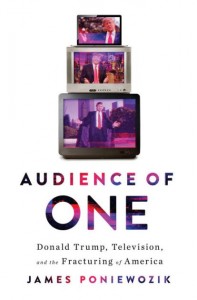
The central and irreducible insight of James Poniewozik’s brilliant book — making it for me the only account I’ve read of Donald Trump that makes his poisonous career both legible and explicable — is to view that trajectory as part of the tainted history of television, and to see Trump as a hapless victim of that history as well as a sinister perpetrator.
This is an insight that I’ve already had glimmers of whenever I’ve blanched at how much ungodly fun Rachel Maddow has been deriving from the cornucopia of Trumpian horrors, and how creepily her nightly boasts about what a “big” show she has in store for us replicates the weekly promises of Ed Sullivan on his variety show between 1948 and 1971. But the fact that I’ve never watched “reality TV” means that I need someone like a New York Times TV critic to show me how dutifully and consistently Trump has replicated its gestures, assumptions, and attitudes as President, and how doggedly both Fox TV and MSNBC have remained in sync with and in thrall to its very fibers.
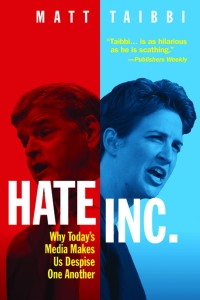
This is also part of the persuasive thrust of Matt Taibbi’s recent Hate Inc.: Why Today’s Media Makes Us Despise One Another, which claims to be inspired by Edward Herman and Noam Chomsky’s Manufacturing Consent. Read more
From Monthly Film Bulletin, February 1975 (Vol. 42, No. 493). — J.R.
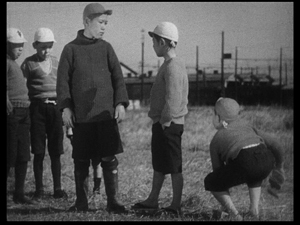
Umarete wa Mita Keredo (l Was Born, But . . .)
Japan, 1932 Director: Yasujiro Ozu
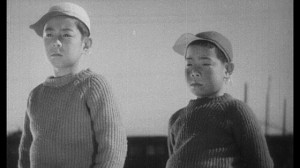
Yoshi moves with his wife and two sons, Ryoichi and Keiji, from
Azabu to a Tokyo suburb, close to the home of the director of the
company where he works. His sons are ostracized and persecuted
by the other boys in the neighborhood; arriving late for school
after Yoshi urges them to get high marks, they decide to play
hooky and do their lessons in a nearby field, forging high marks on
their papers which they bring home to show their father. But Yoshi
is informed by Ryoichi’s teacher that they were absent from school,
and makes sure that they attend the following day. After a delivery
boy whom they befriend overpowers a bully who previously
defeated Keiji, the boys are accepted as leaders by their local
schoolmates. Yoshi’s boss screens home movies for his family
and friends, including his son Taro, Yoshi, Ryoichi and Keiji;
the latter two are horrified when they see Yoshi making faces and
otherwise demeaning himself in the films to please his boss, and a
family fight ensues after they and their father return home. Read more
From the January 2015 issue of Sight and Sound. — J.R.
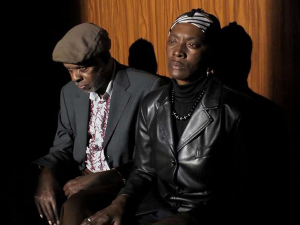
Horse Money
Director(s): Pedro Costa

Adieu au langage
Director(s): Jean-Luc Godard
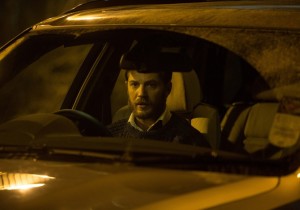
Locke
Director(s): Steven Knight

The Owners
Director(s): Adilkhan Yerzhanov

Citizenfour
Director(s): Laura Poitras

TV vote
Borgen
Director(s): several
***

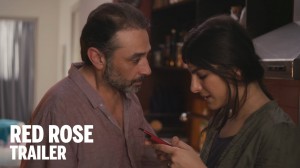

Remarks:
Sadly, I’ve had to omit two exceptional Iranian films (Reza Mirkarimi’s Today, Sepideh Farsi’s Red Rose), two exceptional performances by Juliette Binoche (Fred Schepisi & Gerald Di Pego’s Words and Pictures, Olivier Assayas’s Clouds of Sils Maria), Alain Resnais’ final feature (Life of Riley), and the belated appearance of Orson Welles’ unfinished and ancient but still-sprightly Too Much Johnson. But my top five continue to provoke and expand. Horse Money and The Owners need to travel more, and Locke, which feels like a classic heroic Western, deserves to be recognized as more than just a stunt or tour de force. Adieu au language re-invents 3-D and cinema, and Horse Money, like The Owners, Citizenfour, and Today (not to mention Borgen, in its own fashion). re-invents both the world and its moral prerogatives.

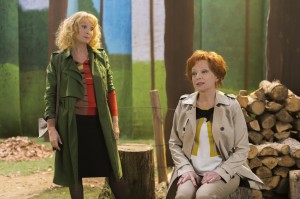
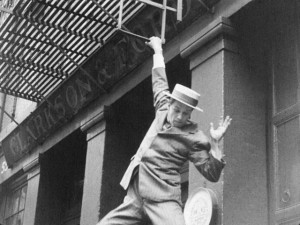 Read more
Read more


















